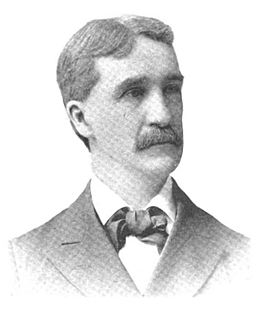A Quote by Ralph Waldo Emerson
A friend is a person with whom I may be sincere. Before him I may think aloud. I am arrived at last in the presence of a man so real and equal, that I may drop even those undermost garments of dissimulation, courtesy, and second thought, which men never put off, and may deal with him with the simplicity and wholeness with which one chemical atom meets another.
Related Quotes
No man can promise himself even fifty years of life, but any man may, if he please, live in the proportion of fifty years in forty-let him rise early, that he may have the day before him, and let him make the most of the day, by determining to expend it on two sorts of acquaintance only-those by whom something may be got, and those from whom something maybe learned.
Even there, in the mines, underground, I may find a human heart in another convict and murderer by my side, and I may make friends with him, for even there one may live and love and suffer. One may thaw and revive a frozen heart in that convict, one may wait upon him for years, and at last bring up from the dark depths a lofty soul, a feeling, suffering creature; one may bring forth an angel, create a hero! There are so many of them, hundreds of them, and we are all to blame for them. [...] If they drive God from the earth, we shall shelter Him underground.
I will trust Him. Whatever, wherever I am, I can never be thrown away. If I am in sickness, my sickness may serve Him; in perplexity, my perplexity may serve Him; if I am in sorrow, my sorrow may serve Him. My sickness, or perplexity, or sorrow may be necessary causes of some great end, which is quite beyond us. He does nothing in vain.
There are three points of doctrine the belief of which forms the foundation of all morality. The first is the existence of God; the second is the immortality of the human soul; and the third is a future state of rewards and punishments. Suppose it possible for a man to disbelieve either of these three articles of faith and that man will have no conscience, he will have no other law than that of the tiger or the shark. The laws of man may bind him in chains or may put him to death, but they never can make him wise, virtuous, or happy.
"But even if he has been wicked," pursued Rose, "think how young he is; think that he may never have known a mother's love, or the comfort of a home; that ill-usage and blows, or the want of bread, may have driven him to herd with men who have forced him to guilt. Aunt, dear aunt, for mercy's sake, think of this, before you let them drag this sick child to a prison, which in any case must be the grave of all his chances of amendment."
Let us take a patriot, where we can meet him; and, that we may not flatter ourselves by false appearances, distinguish those marks which are certain, from those which may deceive; for a man may have the external appearance of a patriot, without the constituent qualities; as false coins have often lustre, though they want weight.
You may object that by speaking of simplicity and beauty I am introducing aesthetic criteria of truth, and I frankly admit that I am strongly attracted by the simplicity and beauty of mathematical schemes which nature presents us. You must have felt this too: the almost frightening simplicity and wholeness of the relationship, which nature suddenly spreads out before us.
For what accords better and more aptly with faith than to acknowledge ourselves divested of all virtue that we may be clothed by God, devoid of all goodness that we may be filled by him, the slaves of sin that he may give us freedom, blind that he may enlighten, lame that he may cure, and feeble that he may sustain us; to strip ourselves of all ground of glorying that he alone may shine forth glorious, and we be glorified in him?
Plenty more of the Nays sound perfectly sincere, though. They may genuinely dislike [Bob] Dylan; they may even enjoy or admire him, but just don't think he's all that. Fair enough. The reaction of such folk seems to be chiefly amazement tinged with befuddlement: they've given him what? You're kidding me.








































